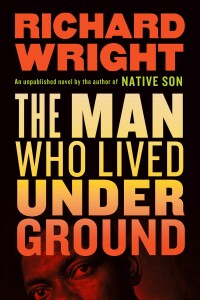 Richard Wright’s The Man Who Lived Underground is a fascinating example of a lost novel. A relatively early manuscript by an author famed for his work dealing with the American black experience, this volume is as much a reflection of what could have been as it is an extension of his existing themes and storytelling.
Richard Wright’s The Man Who Lived Underground is a fascinating example of a lost novel. A relatively early manuscript by an author famed for his work dealing with the American black experience, this volume is as much a reflection of what could have been as it is an extension of his existing themes and storytelling.
Calling The Man Who Lived Underground a lost work does hide the fact that a very short abridged version was published posthumously as a short story. This volume is a short novel yes, but could not be mistaken for a short story that was merely unedited. The detailed moments of introspection, horrifying imagery, and peeks into various peoples’ lives seem absolutely necessary to the narrative. While less is more, having read this volume I cannot in good conscience recommend the short version to anyone.
A fascinating aspect of this book comes from the road not taken. Richard Wright’s work was fairly universally brilliant, yet as this book shows the man’s talents could have been groundbreaking in other areas. The Man Who Lived Underground is a brilliant crime novel. While themes of race permeate the entire work, so too do themes of religion, justice and the feeling of a man divorced from a world that had betrayed him. In a similar bit of storytelling to Plato, which Wright’s own grandson notes in his afterword, the effect of a near complete change of world and then changing again is a major aspect to the plot of this story.
In addition to the novel itself, this volume includes “Memories of My Grandmother.” This essay is Richard Wright’s detailed look at his own work on this story, and how he considered it one of his most inspired pieces. Indeed he describes in detail how much of the story was his way of reflecting upon a loved one and her Seventh Day Adventist faith. On page 183, Wright discussed the different approach to the English language he experienced in daily life compared to the English of England, bringing to mind not only the experiences of people of color but also the comments of American crime writers like Hammett and Chandler.
In addition to the story and the essay, this book includes grandson Malcolm Wright’s afterword and detailed pieces on choosing the text of the novel. Both are invaluable reads, reflecting important aspects related to the recovery of the book.
The Man Who Lived Underground is a great lost novel of crime, of race, and of a celebrated author. It is one of Richard Wright’s best works, transcending genre while simultaneously giving a fascinating glimpse at what a magnificent crime writer he might have been. It is easy to recommend to anyone remotely interested in any aspect of the subject matter.
(Library of America, 2021)
